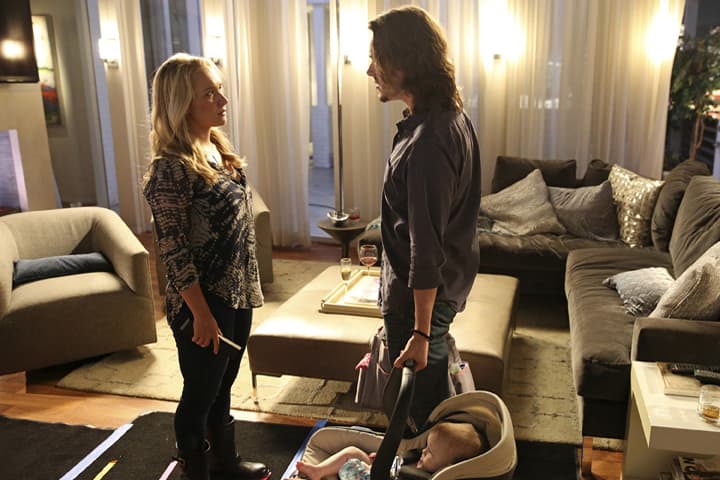Advertisement
Opening Up About Postpartum Depression
ResumeActress Hayden Panettiere made headlines when she opened up about her struggle with postpartum depression. She’s not alone. We look at the latest research.

Word last week that 26-year-old television actress Hayden Panitierre has checked herself into a treatment center for postpartum depression. It was a sudden blurring of fact and fiction. Panitierre’s character on the ABC drama “Nashville” has had a baby and portrayed postpartum depression. But this was real. Real life. Real mother Real child. And the struggle is real for many new mothers after childbirth. So is the stigma. The difficulty in talking openly, honestly, about a tough reality. This hour On Point, real women, real life, and what we know now about postpartum depression.
-- Tom Ashbrook
Guests
Dr. Samantha Meltzer-Brody, director of the Perinatal Psychiatry Program at the University of North Carolina at Chapel Hill's Center for Mood Disorders, where she is also an associate professor in the school of medicine. (@smeltzerb)
Aimee Danielson, director of the Women's Mental Health Program in the department of of psychiatry at at MedStar Georgetown University Hospital. Assistant professor at Georgetown University Medical School.
Dr. Deborah Da Costa, associate professor in the department of medicine at McGill University, where she is also a medical scientist and researcher in the division of clinical epidemiology.
From Tom’s Reading List
Washington Post: Postpartum depression affects more women than you think — "A huge number of new moms suffer from it and many suffer in silence. Or they don’t know how to get help, or even that they should get help. How huge is the number? It could be about one in seven new moms, according to Aimee Danielson, director of the Women’s Mental Health Program in the department of psychiatry at MedStar Georgetown University Hospital."
New York Times: Maternal Depression Often Starts Before Giving Birth, Study Says -- "A study of more than 8,200 women from 19 centers in seven countries found that in those with the severest symptoms — suicidal thoughts, panic, frequent crying — depression most often began during pregnancy, not after giving birth, as is often assumed. Moderately depressed women often developed their symptoms postpartum, and were more likely than severely depressed women to have experienced complications during pregnancy like pre-eclampsia, gestational diabetes or hypertension. Severely depressed women, however, more often reported complications during delivery."
Montreal Gazette: MUHC study suggests expectant dads also get depressed — "Though the 'baby blues' have been widely studied among women and found to affect about 70 per cent of new mothers, the effects of preparing to welcome a new child have rarely been examined in men. But a new RI-MUHC study — the first to look into the subject in Canada — suggests that 13.3 per cent of expectant fathers experienced 'elevated levels of depressive symptoms.'"
Resources (And Your Voices) From Our Conversation
This program aired on October 20, 2015.